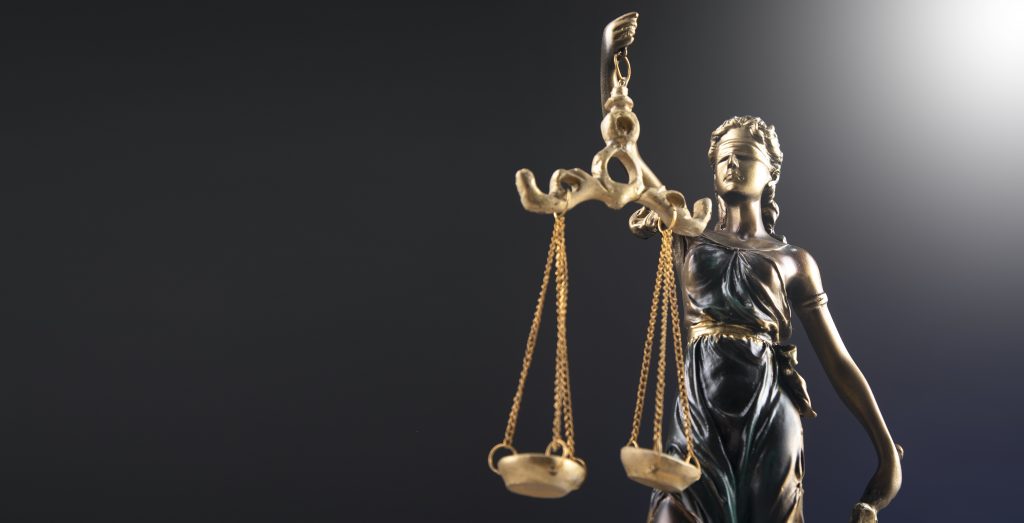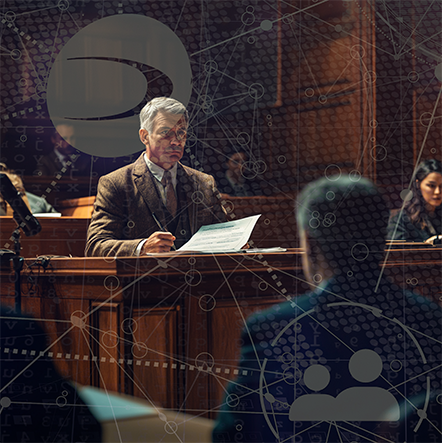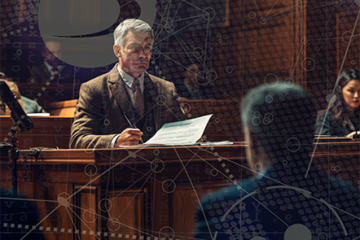Welcome to our deep dive into witnesses’ pivotal roles in the courtroom, focusing specifically on the distinct functions of expert and lay witnesses. Understanding the nuances between these two types of witnesses is essential in legal battles where every testimony can sway the outcome. Expert witnesses, armed with specialized knowledge and qualifications, shed light on complex matters beyond the ken of average individuals. They articulate intricate details in ways that the court can understand and use effectively. On the other hand, lay witnesses, like Kato Kaelin from the O.J. Simpson trial and Mark Felt of Watergate fame, contribute through their firsthand experiences and observations, grounding the court’s understanding of the factual circumstances surrounding a case.
This blog post will explore how these witnesses’ contributions shape legal strategies and influence judicial decisions. We aim to provide a comprehensive overview of their integral presence in the justice system by dissecting their roles and examining famous instances where their testimonies proved crucial. Join us as we navigate through the integral contributions of each witness type, ensuring a robust and balanced comprehension of their roles in achieving fair and comprehensive legal outcomes.
Fact Witness
Definition
A lay witness, or fact witness, is someone who does not possess specialized knowledge related to the case’s subject matter. Their knowledge of the events comes from their personal experience or observations.
Testimony: Fact witnesses can only testify about what they directly saw, heard, or experienced. They are not permitted to provide opinions or conclusions that require specialized knowledge.
Purpose of Fact Witness
The role of a fact or lay witness is to provide firsthand accounts of facts or events relevant to the case, offering the court a factual basis for the dispute.
Selection
Fact witnesses, or ordinary witnesses, are usually involved in the case due to their presence at relevant events or their relationship to the parties in the case.
Examples
In a personal injury case, a lay witness might be someone who saw the accident occur or can testify about the plaintiff’s life before and after the injury.
Throughout history, several famous fact witnesses have had significant impacts on landmark legal cases. For example, during the trial of O.J. Simpson, Brian “Kato” Kaelin provided essential testimony regarding Simpson’s actions and whereabouts around the time of Nicole Brown Simpson and Ronald Goldman’s murders. Another notable fact witness, Frank Wills, was the security guard who discovered the break-in at the Watergate complex, leading to the scandal that eventually brought down President Richard Nixon. Additionally, in the trial of George Zimmerman for the shooting of Trayvon Martin, Rachel Jeantel stood as a key fact witness, providing testimony about her phone conversation with Martin moments before his death. These examples underscore the powerful role that fact witnesses can play in judicial processes by offering direct observations related to the cases.
Expert Witness
Subject Matter Experts
An expert witness has specialized knowledge, skills, experience, training, or education in a particular field. This expertise ranges far beyond what an average person generally knows.
Testimony from Professional Witnesses
Expert witnesses provide opinions, analyses, or expert conclusions within their area of expertise. They can also explain complex technical or scientific subjects to the court.
Purpose of legal consultants
Their role is to help the judge and jury understand complex evidence or ascertain facts that require specialized knowledge.
Selection
Expert witnesses are meticulously chosen based on their credentials, ensuring their qualifications and expertise are beyond reproach. Their testimony often requires prior court approval, further solidifying their status as trusted experts.
Influence in Legal Outcomes
Expert witnesses often play a pivotal role in cases involving complex, technical, or specialized knowledge. Their testimony can be the linchpin in establishing causation, the standard of care, or other critical issues, providing the court with a clear understanding of the technical aspects of a case.
Examples
In a patent infringement case, a software engineer might be an expert witness who offers an opinion on the similarity between two pieces of software coding.

KEY DIFFERENCES IN AN EXPERT’S AND A LAY PERSON’S TESTIMONY
Basis of Testimony
Fact witnesses and expert witnesses serve distinctly different functions based on the nature of their testimonies. Fact witnesses testify solely based on what they have directly observed or experienced. They recount specific events or interactions without embellishing these accounts with personal interpretations or opinions. Their testimony is rooted in firsthand sensory experiences—what they saw, heard, or did. In contrast, expert witnesses offer specialized knowledge or skills in a particular area. They provide opinions and interpretations that help the court understand complex matters. These witnesses analyze, explain, and sometimes predict outcomes based on their expertise, which is particularly invaluable in intricate technical or scientific data cases.
Scope of Testimony
The roles of expert and fact witnesses in court are tailored to their respective types of testimony. Expert witnesses are essential in cases requiring complex, technical, or scientific information interpretation. They help the court by clarifying intricate details and establishing standards, such as the cause of a technical failure or the diagnosis in a medical malpractice suit. Their testimony can often be a deciding factor in how evidence is understood and adjudicated. On the other hand, fact witnesses play a crucial role by providing the foundational facts of a case. Their testimonies typically paint a factual backdrop of the case scenario. Essentially, this establishes a factual basis from which someone can deduce the truth of a situation.
Engagement in the Case
The selection and preparation processes for expert and fact witnesses also differ significantly. Expert witnesses are chosen based on their credentials, experience, and the relevance of their expertise to the case. They undergo thorough preparation to present complex information that is understandable to those without specialized knowledge. This preparation often involves organizing presentations, creating visual aids, and formulating explanations that resonate with a lay audience. Conversely, fact witnesses are selected because of their direct involvement or eyewitness experience in the case’s events. Their preparation mainly focuses on recalling and accurately describing specific details of their experiences. They recieve coaching to remain factual and clear, avoiding subjective interpretations or emotional responses that could undermine the objectivity of their testimony.
Engagement in the Legal Strategy
The strategic deployment of expert and fact witnesses influences the dynamics of a trial. Legal teams must carefully decide when to employ each type of witness to optimize the presentation of the case, balancing factual recounting with specialized analysis to build a compelling narrative.
Complimentary Roles
While fact witnesses provide the foundation with factual accounts, expert witnesses add depth to their analytical capabilities. Together, they offer a comprehensive view of the case, combining factual recounting with expert analysis.
Conclusion
Both expert and fact witnesses are integral to the legal process, serving different but complementary roles. While fact witnesses provide the groundwork of factual evidence, expert witnesses build upon this foundation with their specialized knowledge to clarify complex issues, ultimately aiding the court’s understanding of the case’s nuances. For legal professionals, strategically selecting and effectively preparing both types of witnesses can significantly impact a case’s outcome.
Are you an expert?
Join a thriving community of over 15,000 experts at Expertinfo.com, where your knowledge is valued and your expertise makes a difference. With 40 years of experience in connecting experts like you with attorneys who need your specialized skills, we’re dedicated to facilitating successful collaborations. Don’t miss the opportunity to impact critical legal cases and expand your professional network. Reach out today and become part of our extensive database of leading experts. Your expertise isn’t just needed—it’s essential. Connect with us now and start making a difference!





